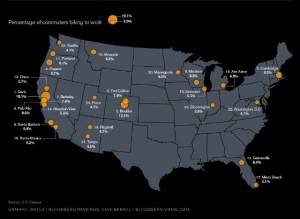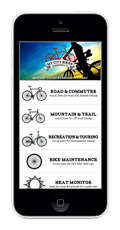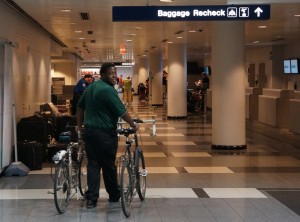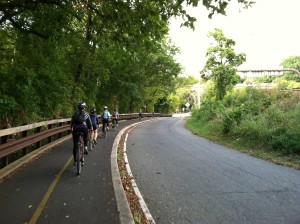
Philadelphia has been installing bike lanes for over a decade. They’re a big draw for its young residents.
You can’t drive through any major U.S. city now without spotting a bike lane. Separate spaces for bikes have surged in popularity, prompting cities across the country to widen their roads, and in some cases reduce car lanes, to accommodate for cyclists.
Bike lanes are typically five feet wide. They run adjacent to car lanes, generally traveling in the same direction as cars. They can next to the car lanes, separated by either by a parking lane or other barriers, and are most often in addition to sidewalks.
Based on data from seven major U.S. cities, the number of bike lane miles has increased about 50 percent from between 2006 and 2013, and cycling has increased about 100 percent, according to the National Association of Transportation Officials (NACTO).
Bike lanes also decrease risk for bicyclists. The same NACTO survey showed that an increase in bike lanes was correlated with a decrease in risk, which diminished by about 50 percent between 2006 and 2013.
Between 2000 and 2012, the number of commuters who rode their bicycles to work rose by 60 percent, according to the U.S. Census Bureau. The number of bicycle commuters rose from about 488,000 in 2000 to about 786,000 in 2012.
Despite the positive impact of bike lanes in the U.S., a number of factors are causing bike lane backlash, making some people weary of them and their implementation. Continue reading

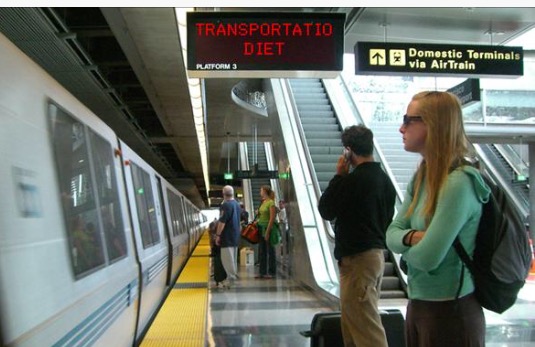
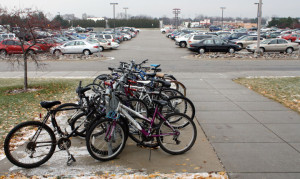 Summer is underway, and we’d like to hear from you. What is your transportation diet these days?
Summer is underway, and we’d like to hear from you. What is your transportation diet these days?